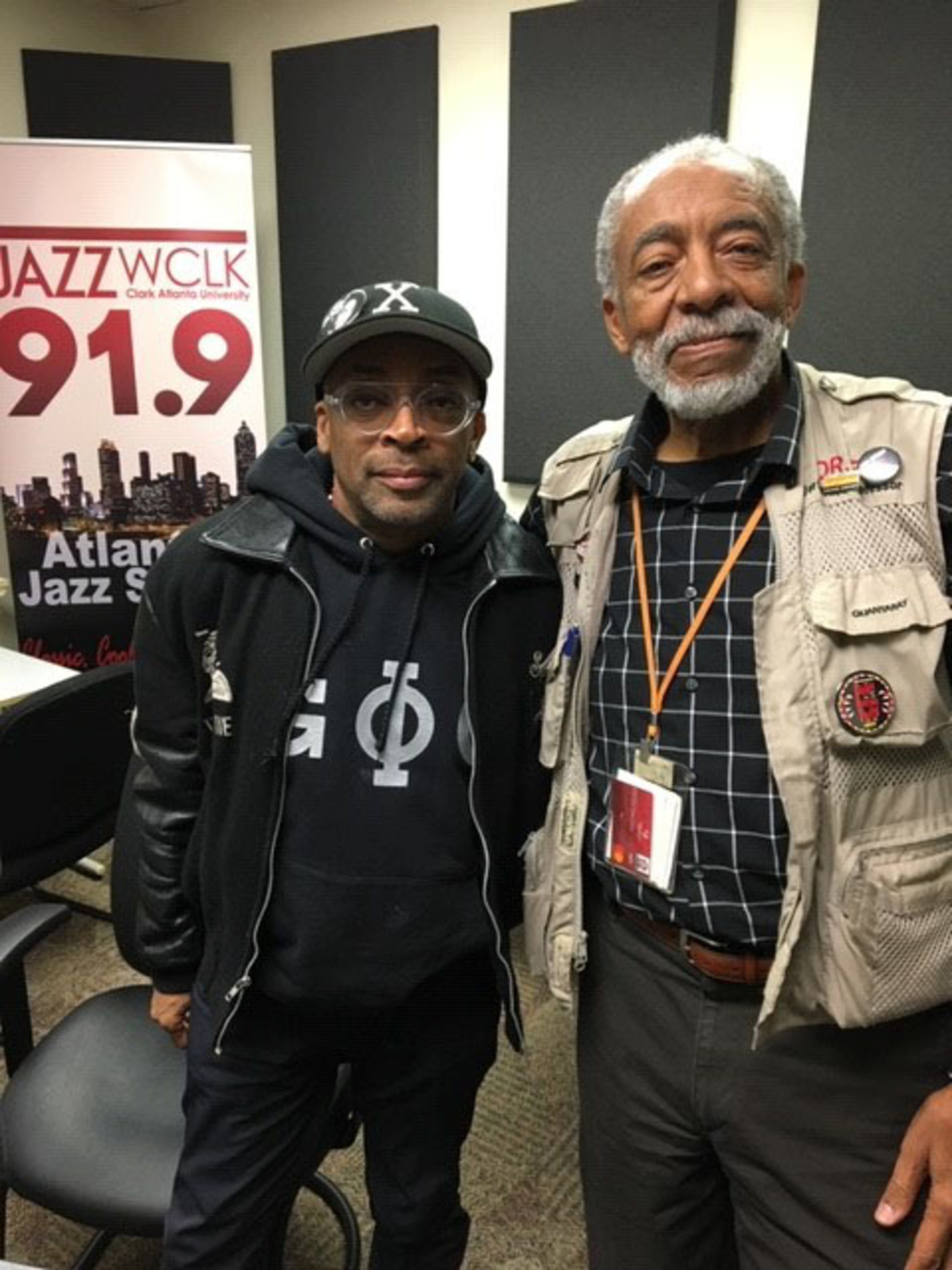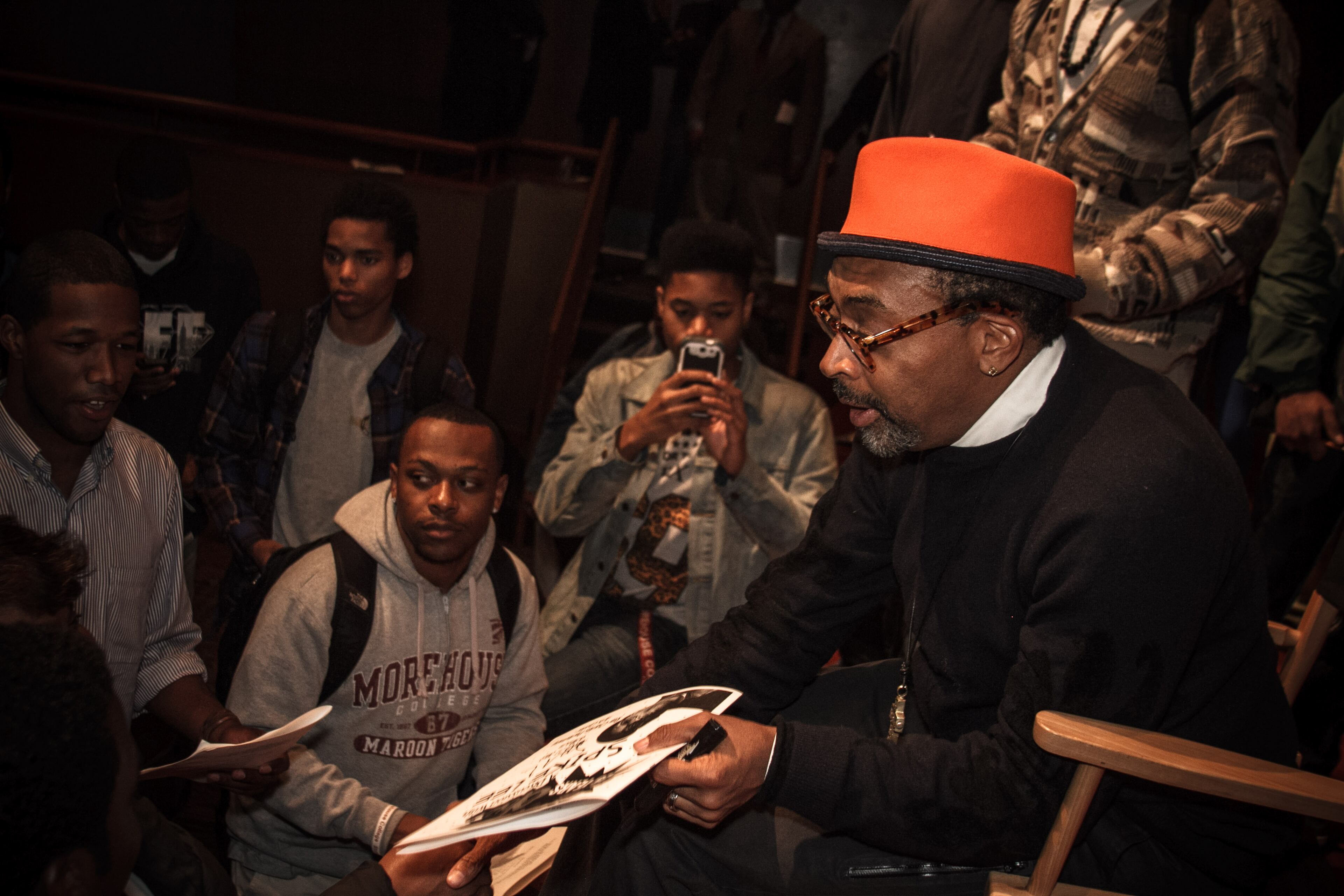Spike Lee’s Oscar journey started at Morehouse and Clark Atlanta
When Oscar presenter Samuel L. Jackson peeked inside the envelope then screamed, “Da ‘House,” Herbert L. Eichelberger knew.
The moment was finally here: Atlanta-born Spike Lee, a 1979 graduate of Morehouse College and former student at Clark Atlanta University, had won his first Academy Award.
Lee — along with Charlie Wachtel, David Rabinowitz and Kevin Willmot — was honored with the Oscar for best adapted screenplay for his work on “BlacKkKlansman,” based on a memoir written by Ron Stallworth.
For Lee, Sunday’s confirmation came after more than 30 years in the game — and after disappointments with “Do the Right Thing” and “Malcolm X.” It was a confirmation, of sorts, for Eichelberger as well.
“When I saw it, it was like spontaneous fireworks went off inside of me,” said Eichelberger, Lee’s former film professor at CAU. “It is a reality check for the students that I teach and see every day. You can reach the highest peaks if you have focus, dedication and the desire to succeed.”
When Lee arrived onstage Sunday night, dressed in a purple suit in honor of Prince and wearing Radio Raheem’s iconic “Love” and “Hate” rings from “Do the Right Thing,” he jumped into the arms of his Morehouse brother Jackson. The audience gave him a standing ovation.

RELATED: How a black police detective infiltrated and stopped the Ku Klux Klan
RELATED: How 'lost' Prince song ended up in Spike Lee's new movie, 'BlacKkKlansman'
“Before the world tonight, I give praise to our ancestors who have built this country into what it is today,” Lee said, evoking images of the 1619 arrival of Africans to America, the dawn of slavery, and of his grandmother, the daughter of a former slave, who went on to graduate from Spelman College. “We all connect with our ancestors.”
Morehouse College — where John David Washington, lead actor of “BlacKkKlansman,” also attended — was quick to recognize one of its favorite sons.
“Spike is an outstanding Morehouse Man. His collective work has touched millions of movie audiences around the world,” said Morehouse President David A. Thomas. “His expertise as a filmmaker and storyteller uplifts the progression of black men and black culture at a global level. We are humbled each time he returns to his alma mater to reconnect with alumni and students who recognize his status as a living legend. We are educating future men of Morehouse to follow in his footsteps.”
RELATED: Watch Spike Lee’s full acceptance speech below
RELATED: Why was Spike Lee talking about 1619?
But the win was also a bittersweet moment for the veteran filmmaker, who was given an honorary Oscar in 2016 for his overall contribution to film.
Lee was also nominated for the first time for best director and the movie for best picture. He lost to Alfonso Cuarón, who took home the best director award for “Roma.” And the controversial “Green Book” won Best Picture.
“I’m snake-bit. Every time someone’s driving somebody, I lose,” Lee said afterward, laughing but serious about the fact that “Do the Right Thing,” was not nominated for best picture in 1989, the year the award was won by “Driving Miss Daisy,” about a wealthy white woman and her black chauffeur.

“I have seen ‘Roma.’ I saw ‘Roma’ at home with my wife. A half hour into it, I was ready to turn the TV off,” Stallworth told The Atlanta Journal-Constitution on Monday. “I think Spike got cheated again. ‘Green Book’ was good, but not better than ‘BlacKkKlansman.’ The message in the film just doesn’t compare. Spike did not get his just due last night.”
While Lee wasn’t able to deliver a best director speech, he said a lot in the speech he gave.
“When we regain our humanity, it will be a powerful moment,” Lee said, moving his speech from history to politics. “The 2020 election is around the corner – let’s all mobilize and be on the right side of history. Make the moral choice between love versus hate.”
It was enough to get the attention of President Donald Trump. The emotional end of “BlacKkKlansman,” Lee’s 1970s period piece, fast-forwards to Trump and the violent 2017 white supremacist riots in Charlottesville that resulted in the death of Heather Heyer.
On Monday, Trump tweeted that Lee did a “racist hit on your President.” Trump also asserted that he has “done more for African Americans” than “almost” any other president.
Eichelberger was dismissive of Trump’s tweet and focused more on his disappointment that Lee didn’t at least take home best director.
“Spike’s films generate questions,” said Eichelberger.
“I thought he had a really good shot at best director,” he said. “You can’t blot out his line of work and his consistency. The Spike Lee name is film.”
Eichelberger has taught film production at Clark Atlanta for 43 years. Although he was enrolled at Morehouse, Lee took all of his film classes under Eichelberger at what was then called Clark College.

In the summer of 1977, Lee lived through and chronicled the blackout that affected most of New York City. When he returned to campus, he wanted to put his footage together as a documentary.
“It was called ‘The Last Hustle in Brooklyn,’” Eichelberger said. “From there, he was on his way.”
Eichelberger’s office at Clark Atlanta University is a mini-museum dedicated to Lee, with the walls lined with signed movie posters, including the rare, “Joe’s Bed-Stuy Barbershop: We Cut Heads,” Lee’s 1983 student film that won a Student Academy Award.
“He was always very studious student,” Eichelberger said, adding that he used to grade Lee’s papers first to set the class’ curve.
The two still talk often, and Eichelberger often gets boxes of scripts and DVDs for the students. Lee used to schedule visits to Eichelberger’s classes, but too many people would show up. Now Lee just pops up unannounced.
“That is the kind of guy he is,” Eichelberger said.

